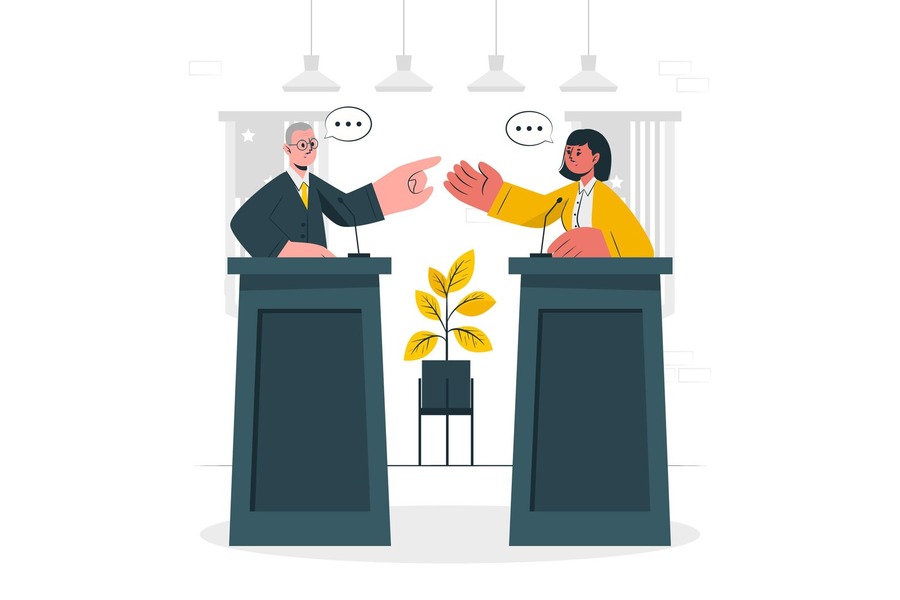
Published :
Updated :

Debate isn't just an after-school activity--it's a game-changer for any individual. One may have started career or is a final year student and thinks starting to learn and practise debating is too late or not important. This is not a wise way of thinking. Learning this skill brings lifelong skills such as clear communication, sharp critical thinking, and the ability to navigate challenges with confidence.
One of the most profound impacts of participating in the debate is the ability to think from perspectives other than one's own. While debating participants must defend positions they may not personally agree with, forcing them to think deeply about opposing viewpoints. This exercise builds intellectual empathy or helps one learn to put oneself in other's shoes.
This skill hits hard in the real world, especially in our corporate culture. Executives here constantly deal with balancing different interests-sometimes it's about keeping the client happy, and other times it's about keeping the team together. Challenges pile up, conflicts arise, and it's not always black and white. What debate does is prepare one for exactly this chaos. It makes one listen better, analyse situations deeply, and respond in a way that fits the moment. Even when the stakes are high, or someone's standing completely against you. It's almost like a mindset one carries into every boardroom and every meeting. Greatest leaders often have great debating skills.
Any professional growth demands the ability to articulate ideas persuasively, and debate is a training ground for developing this art. One can learn how to structure arguments logically, present them convincingly, and counter objections all at the same time if you practise debating. This builds confidence to speak up for oneself in front of one's team or superiors.
A debate also teaches the importance of preparation. Effective leaders, like skilled debaters, understand that success depends on data, research, anticipation of challenges, and the ability to adapt. Debaters seek to unpack and dissect complex issues, identify key points of contention, and propose viable solutions. This sharpens critical thinking, time management and decision-making skills. A debater also needs to consider evidence, weigh consequences, and anticipate counterarguments. In fact, leaders who possess these skills can work with uncertainty and make informed decisions that stand up to scrutiny.
Debates are often seen as competitive due to the mindset of winning through creative arguments. But they also need to practise and learn how to work with their teammates by aligning arguments and flow. They need to plan together to win a debate. This collaborative spirit is like real-world leadership, where success is often a collective effort.
Debaters also learn to value feedback, whether from teammates, judges, or opponents. The ability to accept constructive criticism is a good value to have in the professional world. One can take up practising debating, after graduation, through different social organisations and clubs in Bangladesh. One can also practice on their own as well if they want to improve their skill. But if one is still in academia, one must consider signing up for the next debate-related event.
Debate stands out as an activity that prepares anyone for the complexities of the modern world. It equips them with the tools to think critically, manage time, communicate effectively in public, and collaborate. Beyond academic accolades, debate instils a lifelong appreciation for dialogue and understanding, qualities that are indispensable for leadership. As the world gets more and more complex, such compound skills help one to achieve their goals in professional or even personal life.
fatimaahmad.f02@gmail.com


 For all latest news, follow The Financial Express Google News channel.
For all latest news, follow The Financial Express Google News channel.